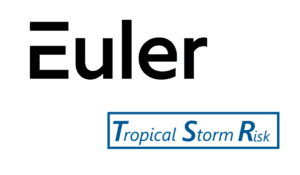How long can someone stay on COBRA?
How long can someone stay on COBRA?
Under the Consolidated Omnibus Budget Reconciliation Act (COBRA) , continuation of health coverage starts from the date the covered employee’s health insurance ends and, depending on the type of qualifying event, may last for 18 months, 29 months or 36 months. May 6, 2021
Are COBRA payments tax deductible 2021?
Yes they are tax deductible as a medical expense. There isn’t necessarily a “COBRA Tax Deduction”. You can only deduct the amount of COBRA medical expenses on your federal income tax in excess of 7.5% of your Adjusted Gross Income and then only if you itemize deductions.
Can I cancel COBRA mid month?
How do I cancel my COBRA coverage? COBRA is generally month-to-month coverage and can be terminated at any time subject to applicable plan provisions. May 25, 2021
How do I find out how much COBRA will cost me?
Sample Calculation Your contribution: $125 per paycheck X 2 = $250 per month. Your employer’s contribution: $400 per month. Total contribution: $250 + $400 = $650 per month. Service charge: $650 x 2% (or 0.02) = $13 per month. COBRA premium: $650 + $13 = $663 per month. Mar 7, 2022
Is it better to use COBRA or Obamacare?
So which one is better? Typically ACA insurance is more affordable than COBRA insurance because you can be eligible for federal ACA subsidies, depending on your income. COBRA costs an average of $599 per month.
How can I avoid paying COBRA?
If you want to avoid paying the COBRA cost, go with a short-term plan if you’re waiting for approval on another health plan. Choose a Marketplace or independent plan for broader coverage. Choose a high-deductible plan to keep your costs low.
Why are COBRA payments so high?
The cost of COBRA coverage is usually high because the newly unemployed individual pays the entire cost of the insurance (employers usually pay a significant portion of healthcare premiums for employees).
Are COBRA payments tax deductible?
Premiums for COBRA insurance are tax-deductible, as you pay them yourself on an after-tax basis. If you buy medical coverage through an insurance marketplace, your premiums are deductible as a medical expense. 7 days ago
Is COBRA cheaper than private insurance?
How Much Does COBRA Cost? COBRA costs less than most private insurance plans because while you’ll now have to pay 100% of the premiums, you still get the same low group rate you had through your job. Feb 23, 2022
Can you cancel COBRA at any time?
You May Cancel COBRA At Any Time To cancel your your COBRA coverage you will need to notify your previous employer or the plan administrator in writing. After you stop your COBRA insurance, your former employer should send you a letter affirming termination of that health insurance.
Who pays for COBRA after termination?
Employers The American Rescue Plan Act (ARPA) significantly impacts employers who have terminated or reduced the hours of an employee. As of April 1st, 100 percent of premiums for COBRA or state continuation coverage must be paid by the employer. Apr 8, 2021
Who has the least expensive flood insurance?
Florida Flood insurance costs by state Florida has the cheapest flood insurance rates, $597 a year, while Vermont has the most expensive average rates, $1,590 a year. The figures below are for flood insurance policies through the NFIP. Mar 21, 2022
How do I get around flood insurance?
5 Ways to Lower Your Flood Insurance Premium #1 Get an Elevation Certificate. Flood insurance is based on the flood zone you are in and how much water will get into your house. … #2 Get a Letter of Map Amendment (LOMA) … #3 Structural Improvements. … #4 Community Involvement. … #5 Compare Rates.
How do I file a flood claim with Geico?
You can report your claim online or by phone at (800) 841-3000.
Why is flood insurance so high?
This is partly because the NFIP cannot pick and choose which properties it will cover, and many policy holders that have never flooded are effectively subsidizing properties that have received repeated flood events, pushing premiums higher and higher each year.





